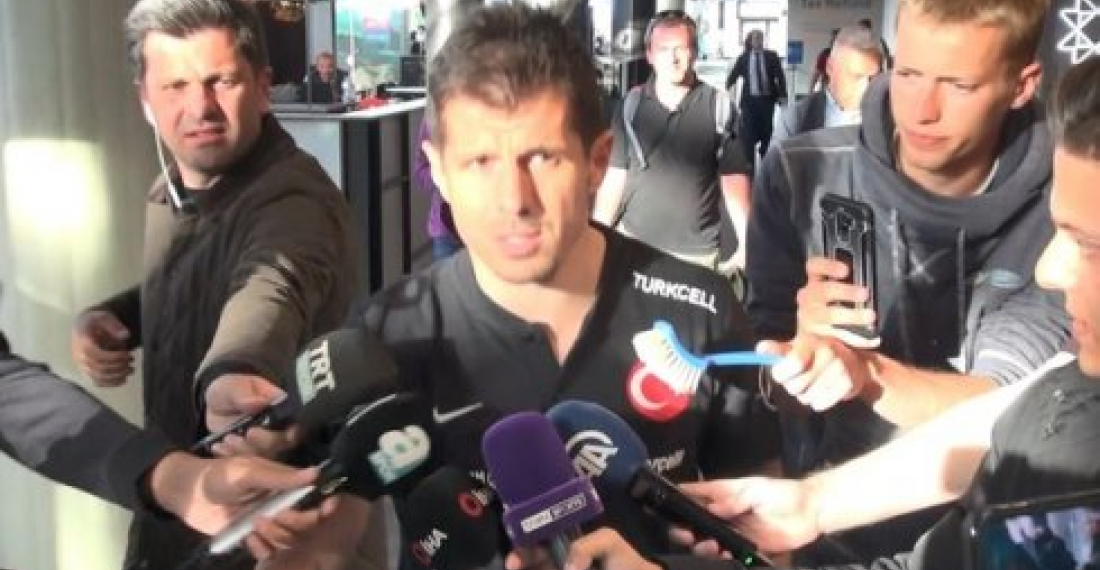Turkey on Monday (10 June) sent a diplomatic protest note to Iceland, condemning the "disrespectful" treatment of the Turkish national football team at Keflavik International Airport.
The note sent through Turkey's Embassy in Oslo condemned the "disrespectful" and "violent" behavior against Turkish footballers during the passport check and demanded extra security measures be taken for the players.
Turkey and Iceland do not have resident diplomatic missions in each other's capitals.
The Turkish team traveled to Iceland after a shock 2-0 victory over world champions France in the UEFA Euro 2020 qualification on Saturday. They arrived late Sunday for their Group H match against Iceland to be played on Tuesday.
According to Turkish forward Burak Yılmaz, the Icelandic authorities made the team wait more than three hours at passport control and subjected them to strict security checks, repeatedly searching the players' belongings thoroughly.
Meanwhile, an unidentified man held up what appeared to be a toilet brush to Turkey's midfielder Emre Belözoğlu, imitating reporters talking to players.
Turkish social media users joined in the criticism and demanded Iceland identify the man, responding with indignation, and graphics showing the Icelandic flag with a brush taking the place of the vertical bar of its red cross. The hashtag #TurksAreComingForIceland trended on Twitter in Turkey. Famous Turkish artists also rallied on social media to support the national team.Turkish media reported that on Monday, Turkish President Recep Tayyip Erdogan held a phone call with Nihat Özdemir, the head of Turkish Football Federation (TFF), regarding the incident and said that necessary precautions are being taken by the state. Erdogan also reassured Özdemir that the Turkish people stand by the national team and the team manager, Şenol Gunes.
"The treatment our national football team was subjected to at Iceland's airport is unacceptable both in terms of diplomatic practices and [in a] humanitarian sense. Our nation should have no doubt that what is necessary will be done," Turkish Foreign Minister Mevlut Cavusoglu wrote in a tweet.
A representative from Isavia, the company that owns and manages the Keflavík airport, told Icelandic media that per international regulations, airport employees were obliged to conduct a security check on the team and that it was more intensive because the flight on which the team arrived departed from an airport that is not part of the One Stop Security area whose security protocols apply to all airports in the EEA. Isavia maintains that as such, all of the passengers on the flight were subjected to the same security checks-including Icelanders. Isavia also says that the security checks took an unusually long time on Sunday night because passengers were traveling with a high number of electronic devices and liquids in their luggage, all of which needed to be individually screened.
Isavia contests Turkey's claims that players were held for three hours, however: they say that the security wait was 80 minutes from the time that the aircraft arrived. The flight arrived at 7:40 pm, representatives say, and the last passenger went through customs at roughly 9:00 pm.
source: commonspace.eu with agencies
Photo: An unidentified man held up what appeared to be a toilet brush to Turkey's midfielder Emre Belözoğlu, imitating reporters talking to the player, following the arrival of the Turkish National Football Team in iceland on Sunday evening (9 June). (Picture courtesy of Daily Sabah, Ankara)






